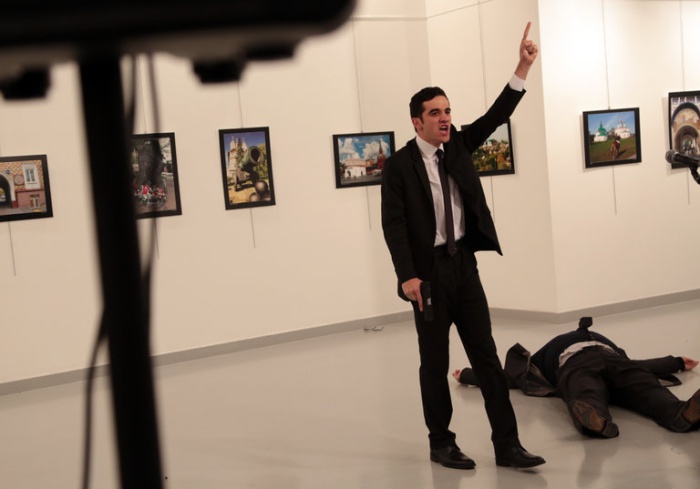Adding to a series of gag orders on critical topics, Turkey on Monday issued a ban on media coverage regarding details of the investigation into the murder of the Russian ambassador to Ankara last week by a police officer.
The Ankara 7th Penal Court of Peace issued the order at the request of the Office of Constitutional Crimes Investigation.
Meanwhile, a Russian investigative team last night met with the Ankara Public Prosecutor’s Office, which is handling the investigation into the assassination of Ambassador Andrei Karlov.
Hours before the gag order, the Hürriyet daily published an interview with the gunman Mert Altıntaş’s sister. While President Recep Tayyip Erdoğan, the government and pro-government media argue that the police officer who murdered the Russian ambassador to Turkey last week was a sympathizer of the Gülen movement, his sister denied any links on his part to the movement and questioned how he had not been dismissed in massive purges over Gülen links.
Altıntaş’s sister denied allegations that he had attended a Gülen-linked prep school and that a businessman had helped the family with the gunman’s education. Altıntaş’s sister said her brother had changed after starting at the police school and emphasized the non-pious lifestyle of the family.
She also referred to a close friend of the police officer who gunned down the Russian envoy and then chanted radical slogans protesting the involvement of Russia in Aleppo.
According to her account, her brother was extremely close to a man she called “S.” and said that even when on duty he was with this young man. This colleague S.B. and Altıntaş were also roommates until S.B. got married.
The police had detained Altıntaş’s latest roommate, a lawyer named Serkan Özkan. During the investigation into the gunman, the law office for which Özkan worked, PGS, was shut down by the police. The partners at the PGS law office had shared photos with government officials including Minister of Interior Süleyman Soylu that have been circulated on the internet.
On Saturday Soylu claimed that the murderer was linked to the Gülen movement and that the radical Islamist clues in his life were efforts to disguise his links to the movement, which is known for its promotion of interfaith dialogue and is frowned upon by Islamists for those efforts.



